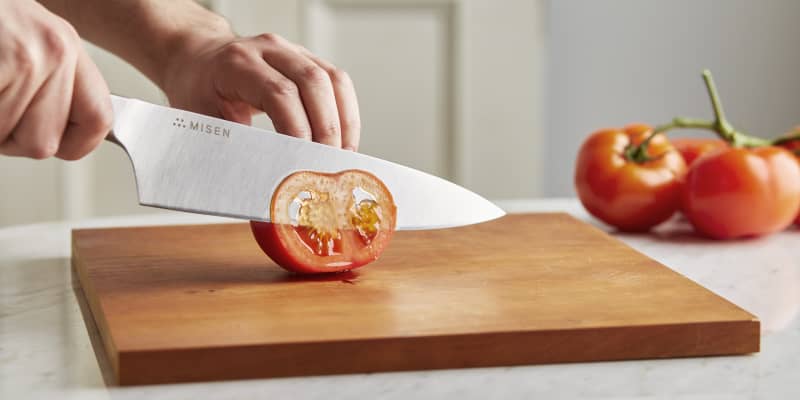For kitchen professionals, the tools of the trade are as important as the skills they hone. A key element in the arsenal of any culinary expert is the knife. But when it comes to choosing between German vs Italian knives, which should you reach for to enhance your culinary creations? This comparison will dive into the unique characteristics of these knives, helping you make an informed decision.

The Craftsmanship of German Knives
German knives have long been a staple in professional kitchens. Known for their durability and precision, these knives are typically made from high-carbon stainless steel, which gives them a balance of strength and sharpness. German knives are often characterized by their full tang construction and heavier weight, making them ideal for tasks that require more force, such as cutting through bones or thick vegetables.
One of the defining features of German knives is their ergonomic design. This ensures comfort during prolonged use, reducing hand fatigue significantly. Furthermore, the bolster on a German knife aids in providing additional balance and safety, making it a favorite among many chefs.
Why Professionals Choose German Knives
Professionals often choose German knives for their unparalleled sturdiness and longevity. The high-carbon stainless steel not only retains its edge well but also resists corrosion, making it a reliable companion in a bustling kitchen. The commitment to quality seen in brands like Wsthof and Zwilling is a testament to the German dedication to craftsmanship.
For those interested in investing in quality kitchen tools, German knife investment can be seen as a wise decision. These knives are built to last, ensuring that your purchase is worthwhile in the long run.
Exploring the Elegance of Italian Knives
On the other side of the spectrum, Italian knives bring a different flair to the kitchen. Known for their elegant designs and sharp edges, Italian knives are crafted with a focus on artistry and precision. Typically made from a combination of high-quality stainless steel and carbon, these knives are lighter and often more flexible than their German counterparts.
Italian knives excel in tasks that require finesse and precision, such as slicing delicate items like tomatoes or herbs. Their lightweight nature and sharp blades allow for intricate cuts that are often required in gourmet cooking.
Why Italian Knives Stand Out
Italian knives are celebrated for their superior sharpness and the ability to maintain a razor-like edge. This characteristic makes them ideal for chefs who prioritize precision in their culinary endeavors. The aesthetic appeal of Italian knives, with their sleek and stylish designs, also adds to their allure.
For those who appreciate the artistry of knife making, Italian knives offer a perfect blend of form and function. Their craftsmanship reflects a dedication to culinary excellence, making them a preferred choice for chefs who value both performance and aesthetics.
Choosing the Right Knife for Your Kitchen
When deciding between German vs Italian knives, several factors should be considered, including your cooking style, the types of dishes you frequently prepare, and personal preference in terms of weight and design.
If your culinary tasks often involve heavy-duty cutting and chopping, a German knife might be the best fit due to its robustness and durability. On the other hand, if precision and elegance are what you seek, an Italian knife could better suit your needs.
Understanding the history and craftsmanship behind each type of knife can also influence your decision. Both German and Italian knives have rich traditions that contribute to their unique qualities, making them both valuable additions to any kitchen.
It's also essential to consider the maintenance and care required for each type of knife. For tips on maintaining your knives, you might want to visit Knife Care Tips.
Conclusion
In the debate of German vs Italian knives, there is no definitive winner. Both have their strengths and are suited to different culinary needs. By understanding the unique attributes of each, kitchen professionals can make informed decisions that enhance their cooking experience.

FAQs
What are the main differences between German and Italian knives?
German knives are known for their durability and weight, making them suitable for heavy-duty tasks. Italian knives, on the other hand, are lighter and designed for precision cutting.
Which knife is better for professional chefs?
It depends on the chef's needs. German knives are great for robust tasks, while Italian knives excel in precision and intricate cuts.
How should I maintain my knives?
Regular sharpening and proper storage are key. For detailed maintenance tips, refer to resources like Victorinox Knife Care Tips.


























